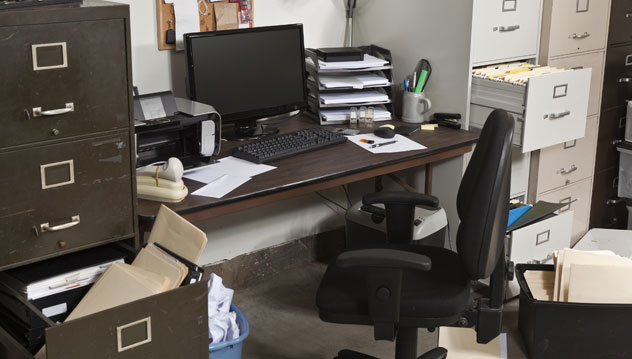Have you ever felt like telling off your boss? Many of us have. That’s why we can identify with cartoons that make fun of difficult bosses.
But before you cut out one of those cartoons to post by your desk, you may want to give some serious thought to the message you will be communicating to everyone who comes by your workspace.
According to Jo-Ellan Dimitrius, Ph.D. and Mark Mazzarella, co-authors of Reading People, workplace “props” can offer significant clues to an employee’s personality, values, and level of commitment to the job.
Although most workers have little control over such matters as furniture style or carpet color, many companies allow employees freedom in how they decorate their workspace.
Workplace items such as calendars, photographs, and reading materials can say a lot about you because, with so many choices available, they provide an ideal opportunity for individual statement.
It is only natural to want to personalize your office space to show your individuality or to make yourself feel more comfortable or “at home”, however, it’s a good idea to be selective about what you display in your workspace.
While you may not label others based on how they decorate their space, your boss, co-workers, and clients may be making judgements about you. After all, a Dilbert day planner or poster of Eminem communicates different messages than a motivational calendar featuring slogans about teamwork and perseverance.
Tasteful photos, artwork and accessories are usually acceptable, while displaying that photo of you and your drunken fraternity brothers mooning the camera is generally not. A collection of beer mugs from your spring break outings, your toe nail clippers, and that voodoo doll that looks just like the boss might be interesting conversation pieces, however, these types of “props” in your workspace are unlikely to create confidence in your judgment, discretion and leadership abilities.
Clutter also communicates a message. Says Dimitrius, “A messy, disorganized desk usually points to a messy, disorganized person.”
Research conducted at the University of Texas found that not only are workers with messy workspaces less reliable, less efficient, and less task-oriented than their clean desk co-workers, but that others also perceive messy workers to be inefficient, disorganized and unimaginative.
So even if you see yourself as a creative genius who thrives in a messy environment, chances are your co-workers and company management don’t see your desk the same way.
What is acceptable varies from one workplace to another, so take a look at the messages you are communicating through your workspace. You may just decide the best place for that controversial cartoon, poster, photograph or accessory is at home.

